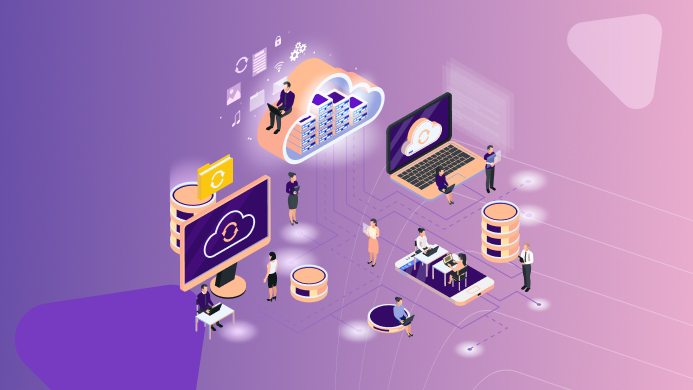In today's fast-paced digital world, mobile apps have become an integral part of our daily lives. From shopping and banking to fitness and entertainment, apps cater to almost every need. For businesses, this means a tremendous opportunity to reach a wider audience and enhance customer engagement. However, developing an app that stands out in a crowded market requires more than just a good idea; it demands strategic planning and informed decision-making. This is where data analytics comes into play, especially for companies offering iPhone and custom Android app development services.
Understanding User Behavior
Data analytics allows developers to gain deep insights into user behavior. By analyzing how users interact with an app, developers can identify which features are most popular and which ones might need improvement. This understanding helps in creating apps that are tailored to user preferences, increasing satisfaction and retention rates.
- Personalization: Data analytics enables the customization of app content to suit individual user preferences. Personalized experiences keep users engaged and encourage repeat usage.
- User Journey Mapping: Tracking user navigation paths helps identify bottlenecks or drop-off points within the app. This information is crucial for improving the user interface and overall experience.
Enhancing App Performance
Performance is a critical factor in the success of any app. Data analytics provides real-time insights into app performance, highlighting areas that require optimization.
- Crash Reports and Bug Tracking: Analyzing crash data helps in identifying and fixing issues promptly, ensuring a smooth user experience.
- Load Time Optimization: Data on app load times across different devices and network conditions can guide developers in optimizing performance for a wider audience.
Informed Decision-Making
Data-driven insights empower developers and businesses to make informed decisions throughout the app development process.
- Feature Prioritization: Understanding which features are most valued by users helps in prioritizing development efforts and resources.
- Market Trends Analysis: Data analytics can reveal emerging trends in user behavior and preferences, allowing developers to stay ahead of the competition.
Improving Monetization Strategies
For many businesses, apps are a source of revenue. Data analytics plays a pivotal role in optimizing monetization strategies.
- In-App Purchases and Ads: By analyzing user interaction with in-app purchases and advertisements, developers can refine their strategies to increase revenue without compromising user experience.
- Pricing Strategies: Data on user willingness to pay can guide pricing models for premium features or subscription services.
Enhancing User Engagement and Retention
Keeping users engaged is essential for the long-term success of an app. Data analytics helps in understanding and enhancing user engagement.
- Push Notification Optimization: Analyzing the effectiveness of push notifications in re-engaging users can lead to more strategic communication.
- Churn Prediction: Identifying patterns that lead to user drop-off allows developers to implement retention strategies proactively.
Streamlining Development Processes
Data analytics isn't just beneficial post-launch; it can significantly impact the development process itself.
- Resource Allocation: Insights into which development stages consume the most resources can lead to more efficient project management.
- Quality Assurance: Data-driven testing approaches ensure that the app meets quality standards before it reaches the market.
Security Enhancement
With increasing concerns over data privacy, incorporating robust security features is non-negotiable.
- Anomaly Detection: Data analytics can identify unusual patterns that may indicate security threats, allowing for timely interventions.
- Compliance Monitoring: Ensuring that the app complies with data protection regulations is essential, and analytics can help monitor adherence.
Supporting Scalability
As the user base grows, the app must scale without compromising performance.
- Load Handling Analysis: Data on server loads and user activity peaks guide infrastructure scaling decisions.
- Cloud Integration: Analytics can determine the most efficient use of cloud services for storage and processing needs.
Facilitating Continuous Improvement
The app development journey doesn't end at launch. Continuous improvement is vital to stay relevant.
- Version Performance Comparison: Analyzing data from different app versions helps in understanding the impact of updates.
- User Feedback Integration: Combining quantitative data with qualitative feedback provides a comprehensive view for improvements.
Enhancing Marketing Strategies
Data analytics bridges the gap between development and marketing efforts.
- Targeted Marketing: Insights into user demographics and behavior enable more effective marketing campaigns.
- Conversion Rate Optimization: Understanding the user journey from discovery to download helps in refining marketing funnels.
Predictive Analytics for Future Planning
Looking ahead is crucial in the ever-evolving app market.
- Trend Forecasting: Predictive models can anticipate future user needs and market trends.
- Resource Planning: Anticipating future development requirements helps in efficient resource allocation.
Integration with AI and Machine Learning
Data analytics is the backbone of advanced technologies like AI and machine learning.
- Personalized Recommendations: AI algorithms use data analytics to offer personalized content, enhancing user engagement.
- Automated Support: Chatbots and virtual assistants rely on data analytics to provide accurate and timely user support.
Cost Reduction
Efficient use of data can lead to significant cost savings.
- Avoiding Unnecessary Features: Data-driven decisions prevent investment in features that do not add value.
- Optimized Testing: Focusing testing efforts based on data reduces time and resource expenditure.
Competitive Advantage
In a saturated market, standing out is essential.
- Benchmarking: Comparing app performance with industry standards guides improvement efforts.
- Unique Value Proposition: Data insights help in identifying gaps in the market that the app can fill.
Building Trust with Users
Transparent use of data builds user trust.
- Data Privacy Practices: Demonstrating responsible data handling enhances the app's reputation.
- Feedback Loops: Showing users that their data contributes to improving the app encourages continued engagement.
Global Market Insights
For apps targeting international audiences, data analytics provides critical cultural and regional insights.
- Localization Strategies: Understanding regional preferences guides localization efforts, making the app more appealing globally.
- Time Zone Engagement: Scheduling updates and notifications based on user time zones maximizes effectiveness.
Enhancing Collaboration
Data analytics fosters better collaboration among development teams.
- Shared Dashboards: Real-time data visibility keeps all team members aligned.
- Performance Metrics: Clear KPIs based on data help teams stay focused on common goals.
Environmental Impact
Efficient apps consume fewer resources.
- Energy Consumption Analysis: Data on app energy usage can guide optimizations that benefit both users and the environment.
- Sustainable Practices: Demonstrating environmental responsibility can be a unique selling point.
Conclusion
Data analytics is a powerful tool that transforms the way apps are developed, deployed, and maintained. For businesses offering custom Android app development services, leveraging data analytics is not just an advantage but a necessity in today's competitive landscape. By harnessing the insights provided by data, developers can create apps that not only meet but exceed user expectations, leading to increased satisfaction, loyalty, and success in the market.
FAQs
- How does data analytics improve app user experience?
- By analyzing user behavior and preferences, data analytics allows developers to tailor the app to meet user needs, resulting in a more engaging and satisfying experience.
- Why is data analytics important in custom Android app development services?
- It enables developers to make informed decisions, optimize performance, and stay competitive by understanding market trends and user expectations specific to the Android platform.
- Can data analytics help in reducing app development costs?
- Yes, by identifying which features are essential and which are not adding value, data analytics helps in allocating resources efficiently, thereby reducing unnecessary costs.
- How does data analytics enhance app security?
- It assists in detecting unusual patterns that may indicate security threats, allowing developers to implement timely measures to protect user data.
- What role does data analytics play in app marketing strategies?
- Data analytics provides insights into user demographics and behavior, enabling more targeted and effective marketing campaigns that can increase app downloads and user engagement.






Comments